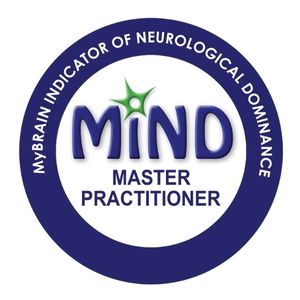We live in a globalized world environment where we can instantly connect and communicate across borders at the touch of a button. Even if we never travel, our team members, customers and suppliers are increasingly international, from diverse cultural backgrounds, and for us to be successful, we have to know how to be effective with our cross cultural communication, to understand others’ point of view and their approach.
What are cultural values?
We are influenced by the culture we were born in, the countries we have lived and worked in. These experiences shape our cultural values, which are our preferences for work, life and interacting with others. They help us to identify how we best collaborate with others and what is most motivating in how we work.
Cultural values also give us valuable insights to explore the similarities and differences in behaviours and communication approaches of colleagues and co-workers, using an academically-validated framework to discuss differences in a non-judgemental way.
We can discover what is driving the gaps and challenges, explore alternative ways to decode others’ behaviours and their possible drivers and intent. Plus we get to choose whether to adapt our usual style to be more successful in how we connect with people, which is especially important when working across borders and in culturally diverse teams.
In our coaching and training, we use a framework of 10 cultural value dimensions from the Cultural Intelligence Center to build a rich and detailed picture of how to interpret your own and others’ communication and behaviours.
We can explore regional averages for norms and behaviours through this cultural framework, however all cultural models are a generalised view. This is why we recommend taking your own personal assessment to understand your individual cultural values.
Cultural values can influence all aspects of workplace behaviours, and here are some examples of where difference may show up between individuals and teams.
Individualism vs collectivism:
People with an individualist tendency are motivated by individual goals, personal achievement, working autonomously, and are comfortable speaking up.
Meanwhile, people with collectivist preferences like working on team goals and to take time to consult and build consensus for a collective view. Harmony is an important factor and individuals may feel on the spot speaking in front of others.
Power Distance:
People with low power distance preferences like to work in flat teams, where people feel free to speak up and challenge each other, no matter who is in the room, junior or senior. Everybody is involved in decision-making and the team tends to be informal.
If there is a preference for high power distance then the team structure matters for approval processes, communication flows through each level of the organisation in turn, and the leader ultimately makes the decision, which is not questioned or challenged. The team is usually quite formal.
Do your teams need support to develop their cultural intelligence?
The benefits of understanding cultural values
There are many benefits of understanding each other’s cultural values in a team including:
- Effective communication as individuals in a team know when to adapt what they say and how they say it to be clearer.
- Improved rapport, trust and collaboration as individuals better understand others’ motivations and intent when they communicate, which can lead to enhanced work relationships.
- Navigating the challenges and conflicts when individuals understand that cultural values could be driving miscommunication and misunderstanding
It all starts with self-awareness. You cannot understand others until you understand yourself, so we begin by gaining insight into your own individual cultural preferences and the influence on how you show up at work through an assessment.
Then we can start exploring the cultural values of others, focusing not only on differences, but also on what is similar in your approach, what unites you and ultimately connects you.
Looking for something else? Questions?
Discover your own Cultural Values:
If you want to learn more about Cultural Values and how they impact your people, ask me about Cultural Intelligence Assessments so you can discover how your team dynamics are influenced by culture.
We can use this to help create bespoke training and coaching for you or your organisation to increase collaboration, trust and build stronger relationships.
Contact us here to find out more.
Victoria Rennoldson, communication coach and Cultural Intelligence trainer, is the CEO and founder of Culture Cuppa.
She helps international leaders with their communication for their next career step, and teams working cross-culturally for growing themselves and their businesses globally.
Victoria is the podcast host of Cultural Communication Confidence.
This article originally appeared in Expert Profile Magazine, Winter 2023.





